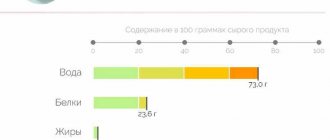How many calories do you need to burn to lose 5 kg?
In 1958, scientist Max Wishnofsky determined Caloric equivalents of gained or lost weight, that one pound of fat in the human body corresponds to 3,500 kilocalories. Thus, one kilogram of fat is equal to 7,716 kcal.
This means you need to create a deficit of 7,716 kcal to lose 1 kg.
Let's say your goal is to lose 5 kg. You consume 2,000 kcal per day, and spend 2,500 - creating a deficit of 500 kcal. If you stick to this diet, you will lose a kilogram in 15 days. And to lose 5 kg, you will need 2.5 months.
It looks simple. But when it comes to processes in our body, everything becomes much more complicated. Our body easily adapts to new conditions, including hunger.
How to boost a slow metabolism
At first, a calorie deficit will indeed lead to rapid weight loss, but then the metabolism will slow down. Why do obese patients not lose more weight when treated with low-calorie diets? A mechanistic perspective. In conditions of malnutrition, the body will begin to conserve energy. For intensive weight loss, you will need something more than your usual diet.
For example, playing sports. Strength training and high-intensity interval training create an oxygen debt in the body. Calories are consumed to cover it, both during training and for several hours after it.
Exercise is also important for another reason: if you consume enough protein, it prevents muscle loss.
How to lose fat, not muscle
The goal of losing weight is to get rid of excess fat in the body. However, along with fat, you also lose muscle mass during a calorie deficit. This is extremely undesirable for a beautiful figure.
In May 2008, scientists from the University of Alabama at Birmingham conducted a study on preserving muscle mass and restoring energy expenditure following weight loss.
It confirmed that strength training while on a low-calorie diet can preserve strength and muscle.
However, protein is needed to build muscle. If you are doing strength training while dieting, add protein-rich foods to your diet.
- You lose one kilogram of weight, creating a deficit of 7,716 kilocalories.
- This works in the first days of the diet, and then the metabolism slows down.
- To prevent your metabolism from slowing down and you from losing muscle mass, include protein-rich foods in your diet and do strength training.
Intensive combustion
In order to activate the fat burning process, it is possible to use various methods and conditions:
- calorie deficit;
- workouts, especially cardio;
- depletion of glycogen stores by strength training.
If the body is to some extent depleted and also actively moves, it begins to actively burn fat. Only this process really works actively only at the beginning.
Therefore, truly intense combustion is possible within 1-2 days. Then the body will connect backup mechanisms and save energy. In order to achieve high results, you will need to try very hard, you need to eat practically nothing and train a lot.
A serious calorie deficit combined with exercise will allow you to burn 1-2 kilograms per day. However, we repeat, this will only be possible over a short distance. In general, only a trained body can tolerate such loads.
How to count calories
You can use websites and apps with ready-made recipes. You just need to follow the exact proportions and quantities of ingredients.
Edalite.ru
On this site you will find detailed recipes with photographs. At the end of each, the calorie content and content of proteins, fats, carbohydrates and dietary fiber are indicated.
YumNymra
There are quite a lot of recipes on the site. There are filters “Low-calorie”, “Fast”, “Simple”. Calories and nutrient composition are listed in the table. If you change the amount of ingredients, you can click on the “Calculate calories” button and find out how many calories there will be in the dish.
My healthy diet
On this site, all products and recipes are discussed in detail. Below the recipes the calorie content, amount of proteins, fats and carbohydrates are indicated. Below the products there is a description of the vitamins and microelements they contain.
Calorie counter from FatSecret
In this application you can keep a food diary. Add the foods you have eaten, and the utility will calculate calories and nutritional value. There are ready-made meals and products from different brands. It is even possible to read the barcode of a product.
The app also includes an exercise diary. You can find out how many calories you spend on different types of physical activity.
By the way, the FatSecret service is also available on a PC, if it is more convenient for someone to count calories and activity there.
Fat and the human body: why is it important to know how many calories are in a kilogram of fat?
Fat deposits in the body protect internal organs from mechanical stress and keep the body in good condition for a long time in the absence of sufficient nutrition. They also help you recover from illness.
However, it is necessary to control the amount of fat. Otherwise, exceeding the norm will become harmful to life processes:
- hormonal imbalance;
- Internal organs with a high fat content work at full capacity;
- emphasis on joints, blood vessels;
- In addition, it is worth paying attention to the risks associated with serious diseases.
This is why it is so important to monitor current data on body fat, so it is necessary to study how many calories are in 1 kg of human fat and how to properly get rid of excess.
How many calories are in 1 gram of fat. Nutritional energy value
The energy value of food (calorie content) is the estimated amount of thermal energy (measured in calories or joules) that is produced by the human or animal body during the assimilation (catabolism) of eaten foods. Depends on the chemical composition of food (amount of proteins, fats, carbohydrates and other substances). The energy value is usually indicated on the packaging of any industrially manufactured products.
For food products, the energy value is usually indicated per 100 grams of product, or per 100 ml of drinks, and includes information on the amount of three main components - BZHU (proteins, fats, carbohydrates) and total energy value. The BJU content is presented in grams, and the caloric content is presented in kcal and kJ (1 kcal = 4.1868 kJ).
The calorie content of food is calculated by burning it in a calorimeter. At the same time, the calorie content of the same product in different tables may differ. This is due to different climatic conditions and methods of growing plants and animals.
How many calories do you need to burn per day to lose weight?
The fight against extra centimeters is not easy; to win you will need a lot of strength and will. And only those who went straight to achieving their dreams will be able to achieve a positive result.
Often, if a woman was overweight, she justified it not with her weak will, but with some kind of health problems, genetic predisposition, rampant hormones - whatever. After all, sometimes it is difficult to admit that the culprit is simple laziness.
So how many calories do you need to burn to get rid of 1 kg of fat?
How many calories do you need to burn per day to lose 1 kg of fat?
It is believed that to burn 1 kg of fat you need to spend 7700 kcal. Nutritionists advise losing weight by 2-4 kg per month (due to fat). Accordingly, in order to safely lose 0.5 kg of fat per week for the body (keep in mind that the plumb line will be slightly larger due to lost water, muscles, etc.), you need to create a calorie deficit of 3850 kcal per week, which is 550 kcal per day (3850:7).
This is exactly the calorie deficit that needs to be created in order to remove 2 kg of fat per month.
You cannot lose weight by cutting down your diet alone. You must eat properly and balanced. Therefore, it is necessary to achieve a calorie deficit in a comprehensive manner: by reducing calorie intake and by increasing physical activity. With an active lifestyle, your metabolism speeds up and your body burns calories faster during everyday activities.
All this is possible if you go through all the steps presented below.
Formulating a goal
The main thing you need is to formulate a goal. To start, make a list of what losing weight will bring you. For example, it could be a dress, a variety of outfits, dates with handsome men, a healthy body. Also make a list of the reasons that could prevent you from achieving this goal.
These points include softness, weakness of will, and lack of character. If you keep these two lists in front of you constantly and compare the obstacles and possible results, you will undoubtedly overcome all obstacles.
Psychological attitude towards losing weight
Once you realize your weaknesses, you will understand what to do next. The more specific you are about your obstacles, the more likely you are to overcome them. For example, weak will. There is no such thing as a weak will “in principle,” but it can be weak in relation to something. For example, for sweets or training. Which exit? Strengthen it by developing new habits. Make a promise to yourself to give up sugar and confectionery for a week or do the minimum possible workout. Keep your promise and you'll feel completely different at the end of the week. Work according to this principle with all your weaknesses.
Calculation of safe minimum calories
Let's not forget that calories are simply necessary to maintain the vital functions of our body, namely: for the functioning of the cardiovascular system, for the respiratory, endocrine, excretory, etc. And in complete rest, our body burns calories. Now let's talk about the safe minimum calories per day.
What is basal energy expenditure?
The amount of energy that the body expends in a state of complete calm is called the basal level of energy expenditure or simply BUE. It can be easily calculated using elementary formulas. With their help, you can determine how much energy the body needs to maintain basic vital functions and an optimal level of functioning.
First of all, you need to know exactly your height in centimeters, weight in kilograms, and you will also need your age. The formulas for highlighting are slightly different for representatives of both sexes:
- men: BUE = 66.5 + (13.8* weight) + (5.0*height) - (6.8*age)
- women: BUE = 655.1 + (9.6*weight) + (1.9*height) - (4.7*age)
For example, following the formula, for a man aged thirty, who is 180 centimeters tall and weighs 100 kilograms, the basal level of energy expenditure will be approximately 2140 kcal (that is, this is exactly the amount of energy the body needs in a state of absolute rest).











